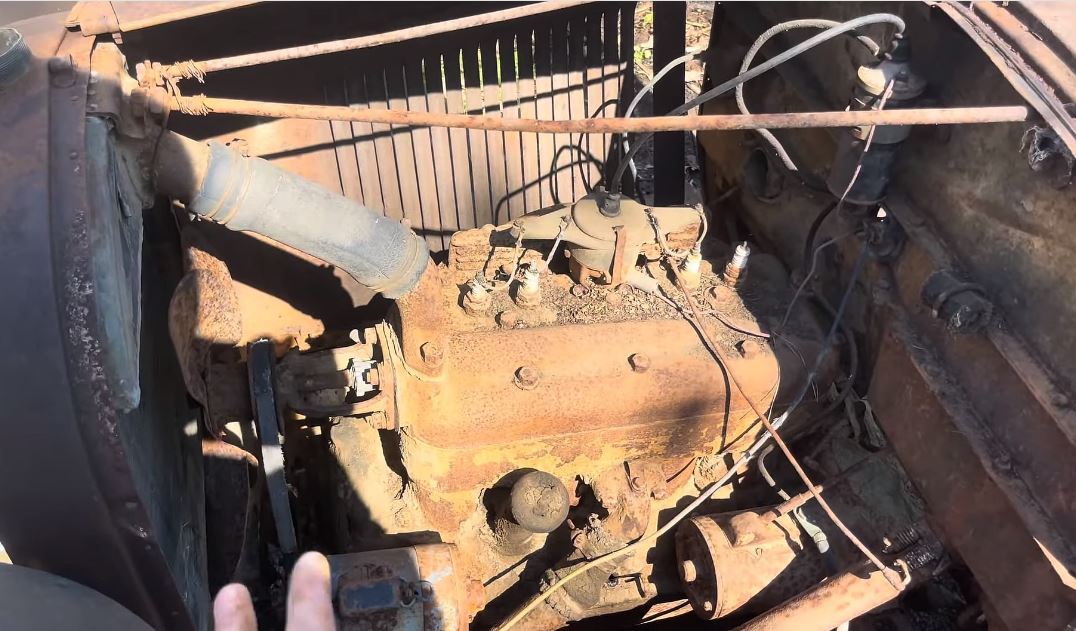How long is too long for a classic to be sitting in a junkyard or barn? Well, it depends on many factors, including weather conditions or whether it’s been protected from the elements or not. However, while a steel vehicle could become a rust bucket in just 20 to 30 years, an engine can be revived even after more than seven decades without a sip of gasoline. This 1929 Ford Model A is the perfect proof.
Discovered by YouTube’s “Jennings Motor sports,” known for reviving vehicles that have been sitting for more than 50 years, this Model A was retired from public roads sometime in the 1940s. Our host doesn’t have an exact date or any sort of documentation, but he speculates that the vehicle sat for 75 to 80 years.
And based on the way it looks, he might be right. The missing rear section is also a solid hint that this Ford was retired sometime in the 1940s. Because there’s a big chance the rear half was removed in an attempt to turn the Model A into a doodlebug. If you’re unfamiliar with the term, it’s the colloquial name for a homemade tractor during World War II.
Why were people turning automobiles into tractors at the time? Well, with all production dedicated to the war effort, you simply couldn’t buy any tractors (or any other car, for that matter) between January 1942 and July 1945. Most doodlebugs were based on Ford automobiles from the 1920s and 1930s.
Unfortunately, the conversion of this 1929 Model A wasn’t completed, so the car ended up sitting like this for several decades. And somehow, the original engine remained under the hood. Just like the Model T it replaced, the Model A was powered by a water-cooled, L-head inline-four powerplant.
Enlarged from 177 to 201 cubic inches (2.9 to 3.3 liters), the Model A generated 40 horsepower and 128 pound-feet (174 Nm) of torque when new. Ford did not introduce the iconic “Flathead’ V8 until 1932, right after the Model A was discontinued.
Although most engines are found locked up after decades without running, this one still moved freely. Moreover, it still had oil in it. I don’t know if it’s pure luck or a case of “they don’t make them like they used to,” but this four-cylinder was begging for a second chance at life. And amazingly enough, it agreed to fire up again after a bit of maintenance.
Granted, this Model A is going places anytime soon, and I bet the four-cylinder won’t get restored either, but it’s the kind of “will it run?” video you don’t see very often. Hit play to see the four-cylinder spring back to life after over 75 years of sitting.

